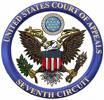Seventh Circuit Criminal Case of the Week: More on Other Bad Acts Evidence
 The Seventh Circuit had only one new opinion in a criminal case this week, and it is not one in which the court broke new legal ground. In United States v. Harris (No. 07-4017) (Williams, J.), the court affirmed the defendant’s convictions for drug trafficking and unlawful gun possession. The defendant raised various evidentiary objections on appeal, including a challenge to the use of other bad acts evidence against him. Specifically, the government introduced evidence of prior drug sales perpetrated by Harris in order to show that he intended to distribute the drugs he was charged with possessing.
The Seventh Circuit had only one new opinion in a criminal case this week, and it is not one in which the court broke new legal ground. In United States v. Harris (No. 07-4017) (Williams, J.), the court affirmed the defendant’s convictions for drug trafficking and unlawful gun possession. The defendant raised various evidentiary objections on appeal, including a challenge to the use of other bad acts evidence against him. Specifically, the government introduced evidence of prior drug sales perpetrated by Harris in order to show that he intended to distribute the drugs he was charged with possessing.
Litigation over other bad acts seems a routine feature of appeals in drug-trafficking cases. As I suggested in this earlier post, it strikes me that the Seventh Circuit has pretty well interpreted the Rule 404(b) restrictions on evidence of other bad acts out of existence, at least in drug cases. Although not as broadly worded as some other opinions, nothing in Harris seems inconsistent with the view that drug defendants are unlikely to find success with their Rule 404(b) arguments on appeal.

 So, the Heller revolution may have legs after all. In District of Columbia v. Heller, 128 S. Ct. 2783 (2008), the Supreme Court breathed new life into the moribund Second Amendment, holding that there is indeed an individual right to bear arms. Heller seemed to mark a major shift in Second Amendment jurisprudence and cast a shadow over much gun control legislation. On the other hand, the Heller Court was remarkably coy about many aspects of the individual right to bear arms, leaving open the possibility that Heller would prove no more than a flash in the pan.
So, the Heller revolution may have legs after all. In District of Columbia v. Heller, 128 S. Ct. 2783 (2008), the Supreme Court breathed new life into the moribund Second Amendment, holding that there is indeed an individual right to bear arms. Heller seemed to mark a major shift in Second Amendment jurisprudence and cast a shadow over much gun control legislation. On the other hand, the Heller Court was remarkably coy about many aspects of the individual right to bear arms, leaving open the possibility that Heller would prove no more than a flash in the pan. On the night of July 20, 2000, Katherine Christianson, Bryan Rivera, and two companions damaged or destroyed more than 500 trees at a United States Forest Service facility. Was it a prank? A dare? A harvest for the
On the night of July 20, 2000, Katherine Christianson, Bryan Rivera, and two companions damaged or destroyed more than 500 trees at a United States Forest Service facility. Was it a prank? A dare? A harvest for the